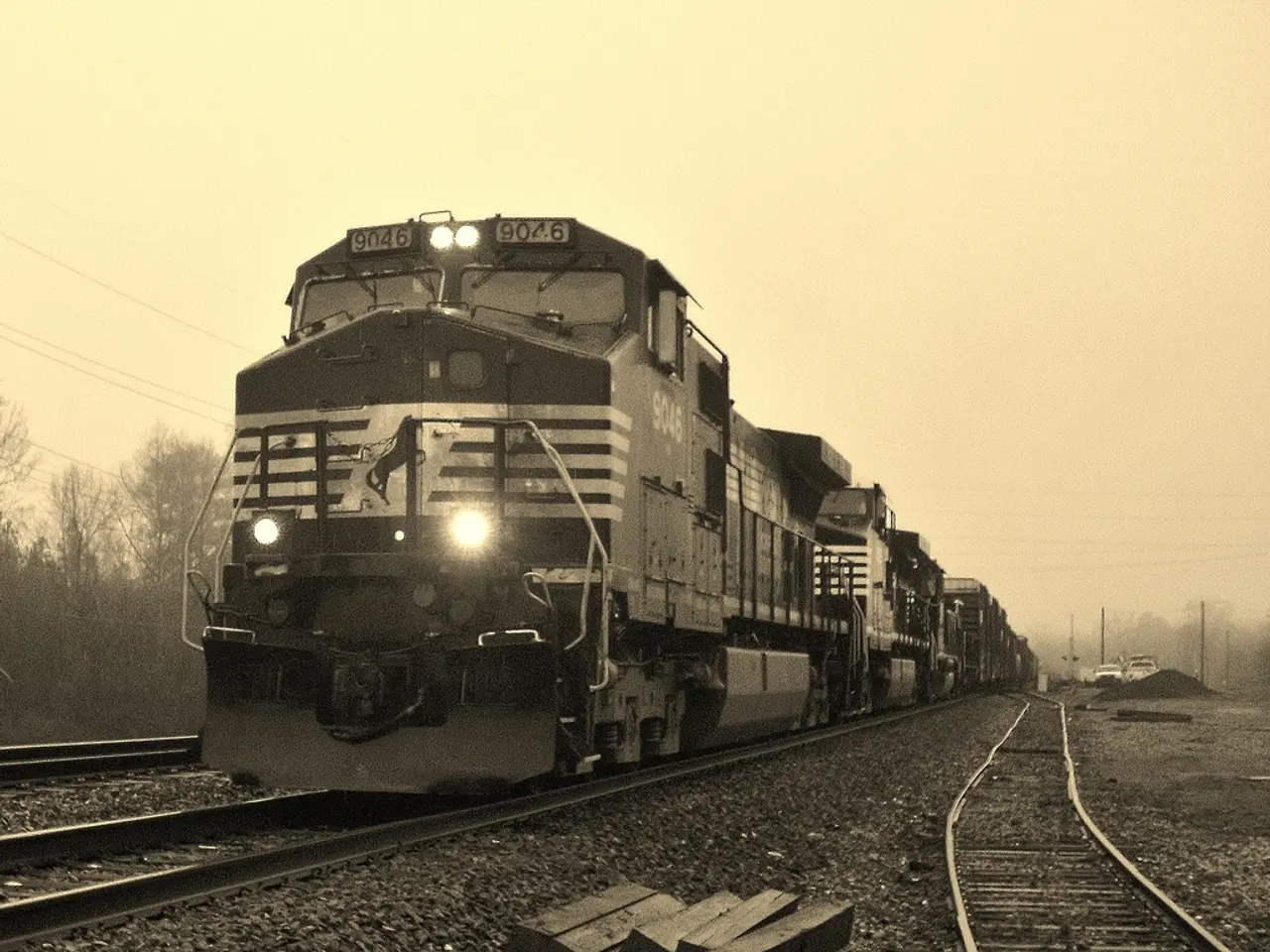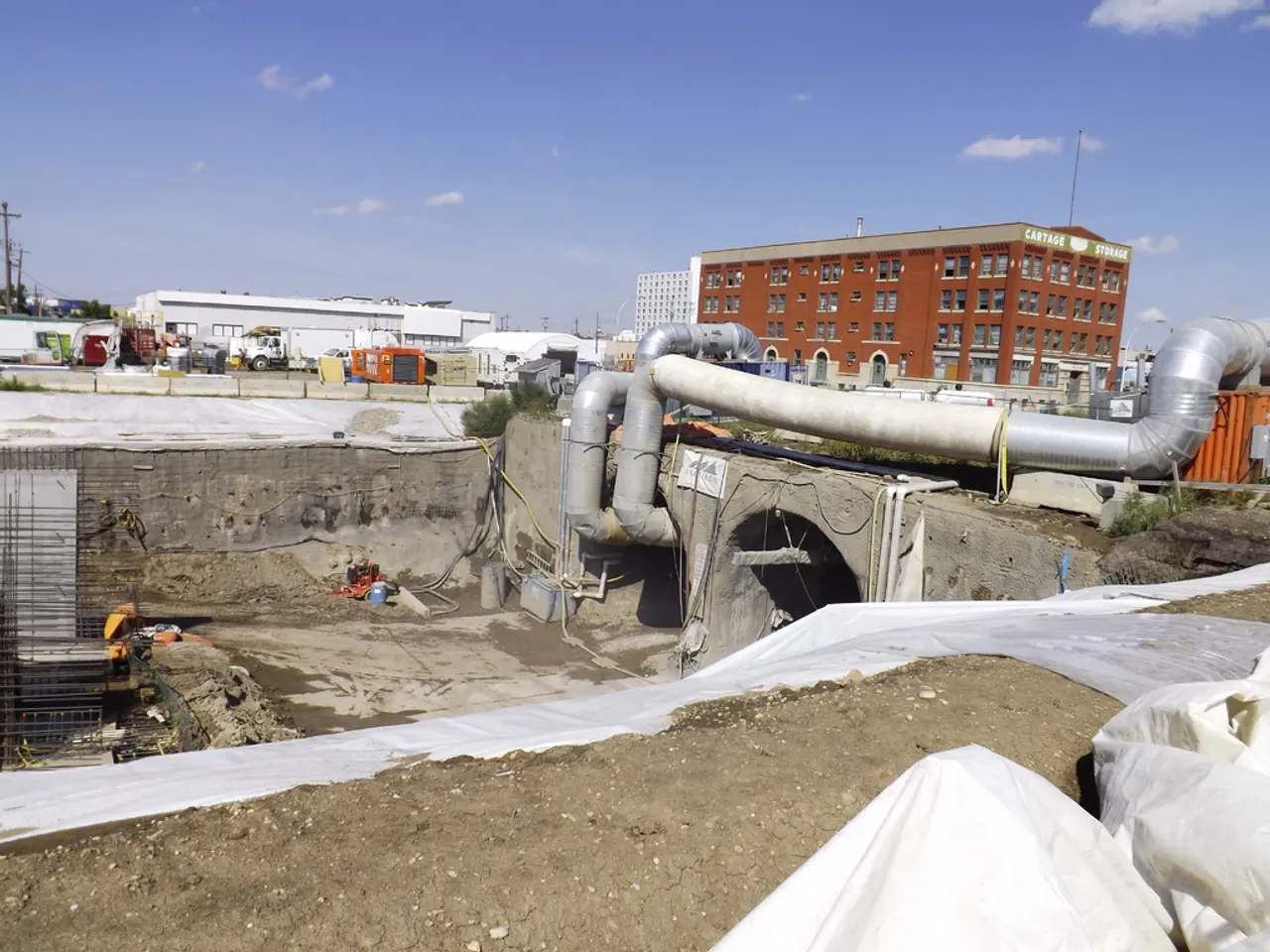Deutsche Bahn's Rail Modernization: Delays Expected as Completion Approaches Mid-2030s
- 1 Min
Railway Company Deutsche Bahn: Likely Extended Renovation Periods - Extensive Renovations at Deutsche Bahn Likely to Extend Completion Time
Germany's railway modernization project, headed by Deutsche Bahn, is facing delays, pushing back the completion date to the mid-2030s. The plan initially aimed to finish all projects by the early 2030s, but the company has revised its strategy to reduce the number of annual corridor renovations, as per a letter from DB InfraGo to other transport companies, obtained by news agency DPA.
The letter emphasizes the need to strike a balance between capacity constraints, the performance of the construction industry, and urgent investment needs in the rail network. The letter states, "In consultation with the new federal government, we therefore plan to adjust the number of generalsanierungen to 4-5 per year." This means that the total of 42 generalsanierungen will not be completed until the mid-2030s.
constructed any time soon. Strikes, technical issues, complex signaling system upgrades, and a challenging economic environment are all contributing factors to the project's expected delays.
The lengthy and extensive nature of the renovations, coupled with the intricacies of upgrading a busy rail network, make it challenging to maintain service without interruptions. For instance, the Berlin-Hanover line will undergo significant modernization, including a six-month full closure starting in early 2026. Such extensive closures and phased work will cause travel disruptions and extend the timeline of completion as each segment needs to be upgraded without compromising safety and service continuity.
Upgrades on the Berlin-Hamburg line involve integrating modern European Train Control System (ETCS) signaling. However, activation of ETCS has faced delays due to technical challenges related to managing dual signaling systems, which impacts the speed of implementation.
The broader construction market in Germany is affected by high financing costs, geopolitical uncertainties, and weak investor sentiment. These factors have caused declines in new construction orders and building permits, slow workforce growth, and a cautious investment outlook in infrastructure projects including rail modernization. This economic backdrop limits construction activity and pushes back project timelines.
Additional impacts come from operational disruptions like strikes affecting train services, which can complicate scheduling and implementation of upgrade works on the network.
Despite the anticipated delays, the ultimate goal of the rail modernization effort is to deliver a more efficient, reliable, and eco-friendly rail system for Germany. The revised timeline acknowledges the complexities involved in carrying out such a massive project. However, it's essential to remember that these upgrades are crucial for improving the state of Germany's ailing rail network.
[1] "The Challenges of Modernizing a Busy Rail Network: Deutsche Bahn's Extensive Renovation Project"
[2] "Delays in Implementing ETCS: Impact on Deutsche Bahn's Rail Modernization"
[3] "Germany's Investment in Infrastructure: Factors Affecting Rail Modernization"
[4] "The Influence of Strikes on Scheduling and Implementation of DB's Renovation Projects"
[5] "Germany's Construction Market: Challenges, Trends, and the Impact on DB's Rail Modernization"
- Community aid may be required to mitigate the financial impact of delays in Deutsche Bahn's rail modernization project, as the completion date has been pushed back to the mid-2030s.
- The project's delays and challenges in the construction industry could potentially affect the timely implementation of new railways, infrastructure crucial for economic growth and CO2 emission reduction in transportation.




